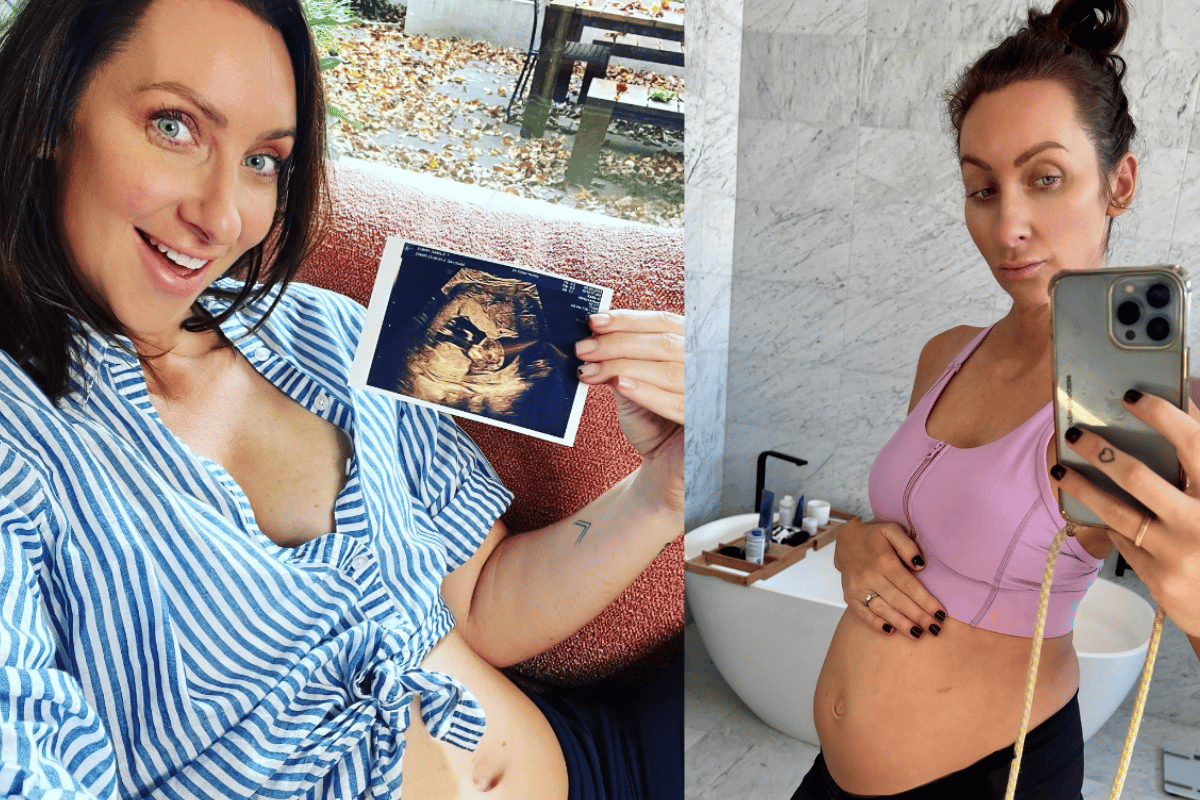
Content warning: This post includes discussion of pregnancy loss that may be distressing to some readers.
I should be feeling grateful, thankful that I'm pregnant. Over the moon. Oozing with anticipation. There are women all around me who would give their left arm to be pregnant. Who have been through multiple miscarriages, rounds of failed IVF and even stillbirth.
How first world of me to admit out loud that I'm actually not feeling that good. That I'm overwhelmed with immense guilt and shame just admitting it. This is supposed to be a 'happy' time.
After we miscarried two years ago, I very quickly turned into a woman on a mission to conceive. Yes, I became one of those women – a bathroom filled with a variety of ovulation kits, pregnancy tests and an app I checked compulsively. Demanding I be penetrated without any warning or foreplay turning what I used to pride myself on a healthy, intimate sex life into a well-oiled sperm meets egg operation.
We tried every trick in the book. And the time when Alex momentarily forgot to hose the inside plants, but instead sprayed the outside ones, turned into me crying profusely, attempting to mop it all back inside.
So yes, after months and months of unwelcomed periods, disappointment and pent up anxiety, we decided booking an appointment to see a fertility specialist seemed to be the obvious next step.
Fortunately for us, we never got there. Four months ago, we fell pregnant. Tick. Job done.
Watch: Perinatal depression and anxiety explained. Post continues below.




























































































